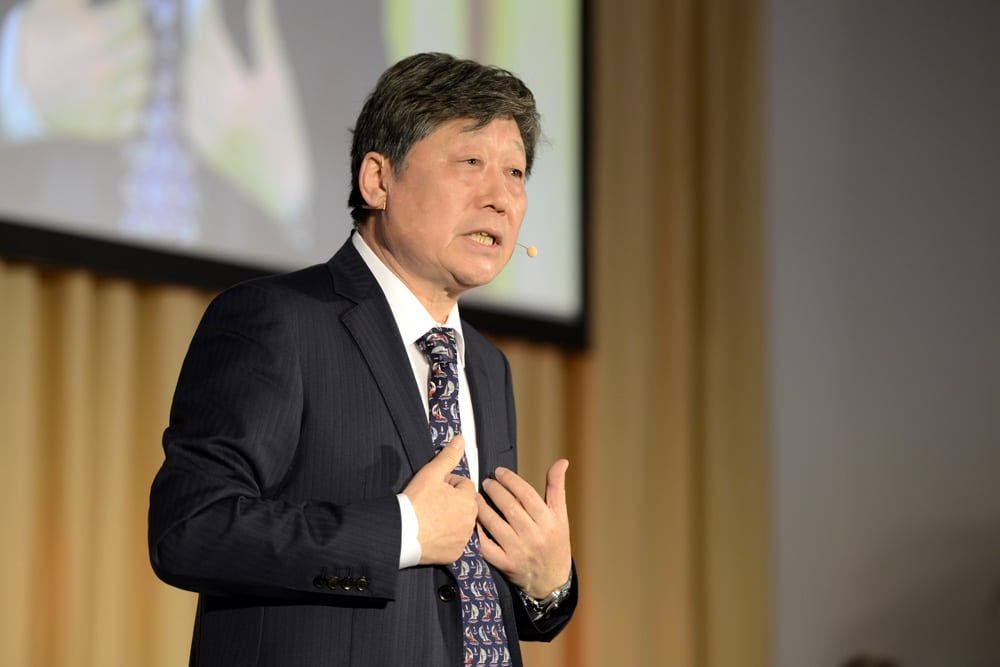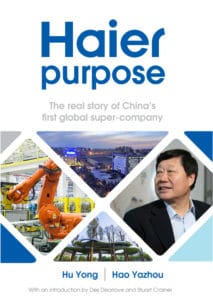
The organizations which are managed in the most effective and innovative ways are likely to outperform their competitors. Management can be a competitive advantage.
This is the basis of the concept of ‘management innovation’, championed by London Business School’s Gary Hamel and Julian Birkinshaw. From Toyota’s lean manufacturing to the Malaysian government’s embrace of blue ocean strategy, organizations of all types are constantly seeking out new and better ways to manage their resources. The job of managers is to improve the performance of the resources they have and to identify the future resources they need.
Increasingly, the vital importance of management is being appreciated by the largest organizations of our times. The challenges now faced by companies such as Facebook, Apple and Google are fundamentally about management. They have all developed groundbreaking technology, now the challenge is to maximize the social and economic impact of that technology. This is a management challenge.
Management has unfortunately received a bad press. Managers are synonymous in some sectors with bureaucrats. In large public sector organizations especially managers are often regarded with suspicion. They are the bean-counters, faceless men and women with their spreadsheets. In fast growing high-tech companies the managers are the guys in the suits brought in to be the grown ups while the smart guys in jeans and t-shirts get into the sexy world of bright ideas and even brighter cutting edge products.
But without management, organizations grind unceremoniously to a halt. It takes management for organizations to grow and develop.
Who are the managers?
If we accept that management is important then who are the managers? Who actually practises management?
Over the last century or more the emphasis has been on professionalizing management, to bring the discipline, status and rewards of the professional to the art and science of management. This has had benefits. Managers are better educated than previously. They fill lecture theatres at business schools, have created the booming executive education market and absorb the constant influx of new ideas from business books, magazines and online talks. Managers know their stuff.
The trouble with this, however, is that management has become exclusive rather than the naturally inclusive activity it needs to be to really succeed. Professional managers, with their MBAs and their bookshelves creaking with insights, have a vested interest in keeping their professional domain safe from interlopers. Turkeys tend not to vote for Christmas.
The reality is that someone with a brilliant idea on the factory floor as to how the organization could better use its resources is unlikely to be heard. This is as true now, with a few glorious exceptions, as it was one hundred years ago. In too many organizations, management stops people managing.
This, we believe, is slowly changing and will need to continue to change. Management will go through a necessary recalibration in order to maximize the new resources at the disposal of managers and organizations. This requires five key realizations:
Alongside this recalibration of management so that it actually delivers what organizations need and want is a questioning of the very nature of organizations.
The context in which management is practised is the organization. Management and the organization exist in tandem. Neither should be static. Organizations constantly change shape and direction – or, at least, they should.
As with management, the organizations of the world largely remain structured as they were one hundred years ago. In the internet age industrial organizations embedded in the structures and expectations of the past remain dominant. Don’t be taken in by the window dressing (in the form of free food, relaxed dress codes and so on), the modern corporation is rigidly structured. It may not have the elaborate organizational charts of yesterday, but it remains remorselessly linear in its structure and thinking.
The modern corporation worked in the twentieth century. Then the emphasis was on size, benefitting from the new vistas of scale made available by the assembly line and mass production. Growing bigger justified the existence of the twentieth-century corporation. This is no longer the case. A company’s headcount can no longer be equated with its commercial health and likely longevity. Companies die and slow moving giants are no exception. Size insulates an organization, but only from the changes necessary to keep it alive.
Research suggests that individuals who experience self-doubt are actually more successful. Apply the same logic to managers and organizations and we believe you will begin to understand what is necessary to compete in the future. The best will question themselves and every aspect of what they do and why.
The Chinese company Haier and its remarkable CEO Zhang Ruimin have been asking questions of how they manage and the nature of their organization for many years. ‘There is no successful company, only those which stay relevant,’ Zhang Ruimin told us when we met at Haier’s headquarters in Qingdao, China. ‘There is no end to exploration of business models and management thinking. You have to challenge yourself. Can you remain relevant in changing times?’
Zhang Ruimin is a humble man. This is expressed in his modest bearing and in his relentless curiosity. He is the best read business leader we have ever encountered. He knows his Mintzberg from his Hamel, his Handy from his Kanter. He wants to improve himself and his organization.
This appears trivial and you would think it is commonplace. It isn’t. Many senior managers we encounter appear hell-bent on securing their legacy or stock options rather than improving their own performance and that of their organization. They are as likely to discuss the latest ideas on innovation as they are to abseil down the headquarters building. There are, of course, exceptions, but humility and curiosity do tend to be in short-supply in the Western corporate world.
 Haier’s story is unique, but its lessons are universal and hugely challenging. The company has come from truly ramshackle origins to take over GE Appliances, part of corporate America’s greatest modern empire. It has changed the way management is practised and it should change the way managers throughout the world think about their jobs.
Haier’s story is unique, but its lessons are universal and hugely challenging. The company has come from truly ramshackle origins to take over GE Appliances, part of corporate America’s greatest modern empire. It has changed the way management is practised and it should change the way managers throughout the world think about their jobs.
So far Haier has managed to pass the relevance test posed by its own CEO. Its story is a remarkable one. But it is not the story of one man nor a single company, it is the story of how management and organizations can and must change if they are to shape the future.
Stuart Crainer and Des Dearlove are the founders of Thinkers50. This is an edited version of their introduction to Haier Purpose by Hu Yong and Hao Yazhou now available from Thinkers50 and Infinite ideas.

Thinkers50 Limited
The Studio
Highfield Lane
Wargrave RG10 8PZ
United Kingdom

Thinkers50 Limited
The Studio
Highfield Lane
Wargrave RG10 8PZ
United Kingdom

Thinkers50 Limited
The Studio
Highfield Lane
Wargrave RG10 8PZ
United Kingdom
| Cookie | Duration | Description |
|---|---|---|
| LANG | 9 hours | Linkedin set this cookie to set user's preferred language. |
| nsid | session | This cookie is set by the provider PayPal to enable the PayPal payment service in the website. |
| sp_landing | 1 day | The sp_landing is set by Spotify to implement audio content from Spotify on the website and also registers information on user interaction related to the audio content. |
| sp_t | 1 year | The sp_t cookie is set by Spotify to implement audio content from Spotify on the website and also registers information on user interaction related to the audio content. |
| tsrce | 3 days | PayPal sets this cookie to enable the PayPal payment service in the website. |
| x-pp-s | session | PayPal sets this cookie to process payments on the site. |
| __cf_bm | 30 minutes | This cookie, set by Cloudflare, is used to support Cloudflare Bot Management. |
| Cookie | Duration | Description |
|---|---|---|
| l7_az | 30 minutes | This cookie is necessary for the PayPal login-function on the website. |
| Cookie | Duration | Description |
|---|---|---|
| CONSENT | 2 years | YouTube sets this cookie via embedded youtube-videos and registers anonymous statistical data. |
| _ga | 2 years | The _ga cookie, installed by Google Analytics, calculates visitor, session and campaign data and also keeps track of site usage for the site's analytics report. The cookie stores information anonymously and assigns a randomly generated number to recognize unique visitors. |
| _gat_gtag_UA_10408481_1 | 1 minute | Set by Google to distinguish users. |
| _ga_ZP8HQ8RZXS | 2 years | This cookie is installed by Google Analytics. |
| _gid | 1 day | Installed by Google Analytics, _gid cookie stores information on how visitors use a website, while also creating an analytics report of the website's performance. Some of the data that are collected include the number of visitors, their source, and the pages they visit anonymously. |
| Cookie | Duration | Description |
|---|---|---|
| NID | 6 months | NID cookie, set by Google, is used for advertising purposes; to limit the number of times the user sees an ad, to mute unwanted ads, and to measure the effectiveness of ads. |
| test_cookie | 15 minutes | The test_cookie is set by doubleclick.net and is used to determine if the user's browser supports cookies. |
| VISITOR_INFO1_LIVE | 5 months 27 days | A cookie set by YouTube to measure bandwidth that determines whether the user gets the new or old player interface. |
| YSC | session | YSC cookie is set by Youtube and is used to track the views of embedded videos on Youtube pages. |
| yt-remote-connected-devices | never | YouTube sets this cookie to store the video preferences of the user using embedded YouTube video. |
| yt-remote-device-id | never | YouTube sets this cookie to store the video preferences of the user using embedded YouTube video. |
| yt.innertube::nextId | never | This cookie, set by YouTube, registers a unique ID to store data on what videos from YouTube the user has seen. |
| yt.innertube::requests | never | This cookie, set by YouTube, registers a unique ID to store data on what videos from YouTube the user has seen. |
| Cookie | Duration | Description |
|---|---|---|
| DEVICE_INFO | 5 months 27 days | No description |
| loglevel | never | No description available. |
| m | 2 years | No description available. |
Thinkers50 Limited has updated its Privacy Policy on 28 March 2024 with several amendments and additions to the previous version, to fully incorporate to the text information required by current applicable date protection regulation. Processing of the personal data of Thinkers50’s customers, potential customers and other stakeholders has not been changed essentially, but the texts have been clarified and amended to give more detailed information of the processing activities.